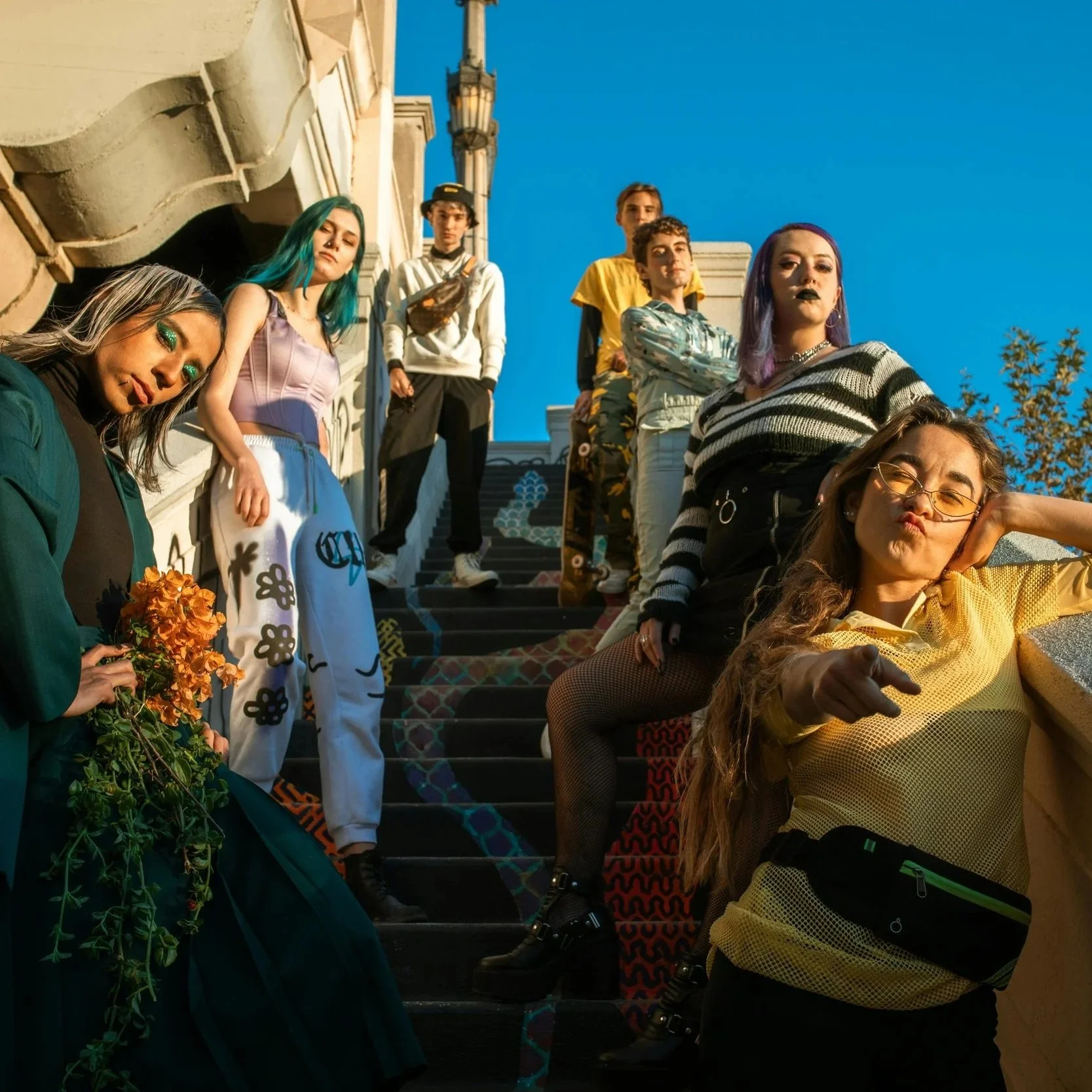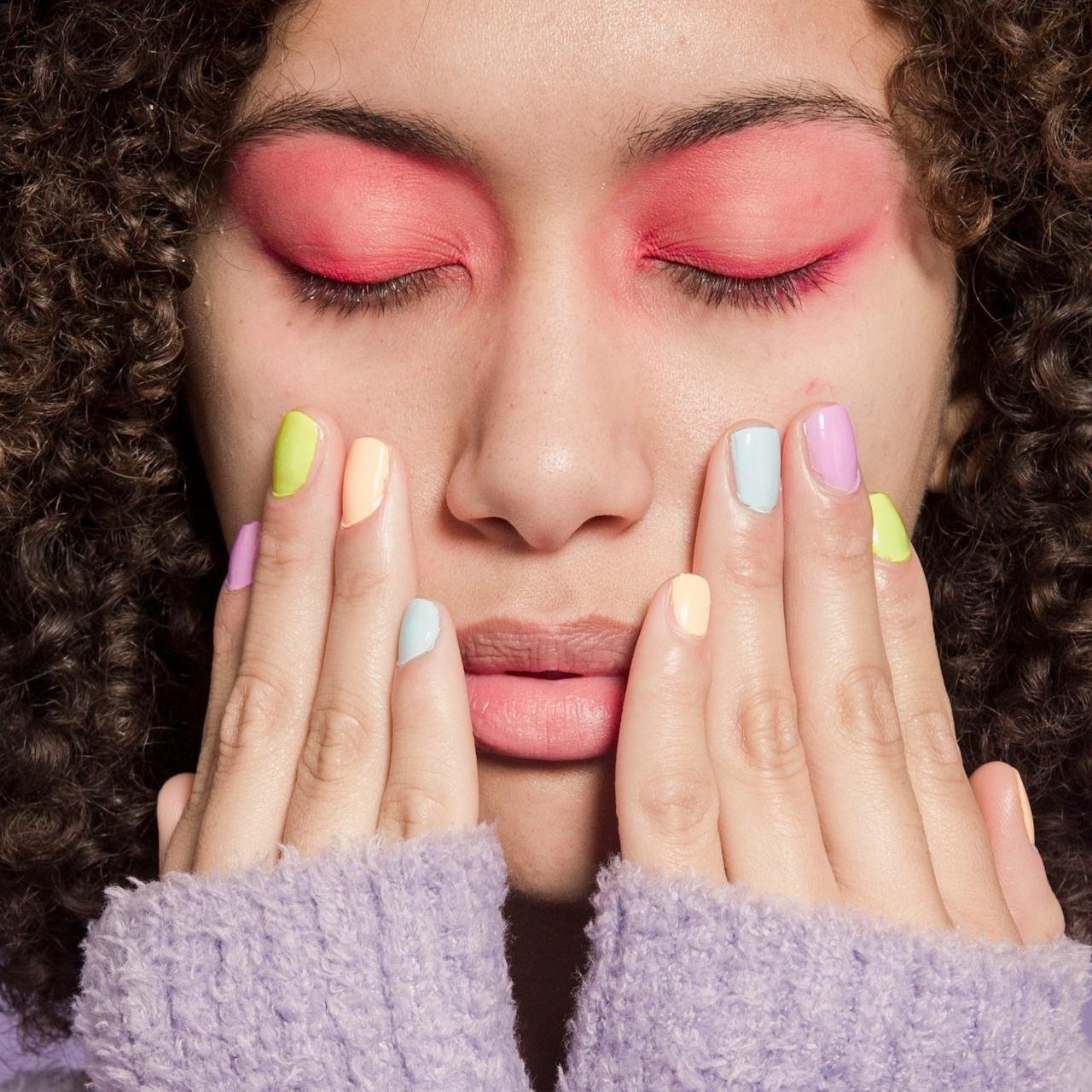Podcast: The Importance Of LGBT-Affirmative Couples Therapy
-
Dr. Josephine McNary:
Hello and welcome to another episode of Mind Stories. Today I'm pleased to have on as our guest Laurel Roberts-Meese. She's a licensed marriage and family therapist in California, Pennsylvania, and Florida. She's the founder and clinical director of Laurel Therapy Collective. This collective specializes in helping driven professionals decrease anxiety and trauma symptoms, handle burnout, and build more fulfilling relationships. Therapists at Laurel Therapy Collective have a particular passion for working with the LGBT community, especially doing couples work. Today we talk about the importance of LGBT, affirmative couples therapy and the couple's work her group does with LGBT couples. Welcome Laurel. Thanks for being on.
Laurel:
Thanks so much for having me.
Dr. McNary:
So one topic we're going to focus on today is LGBT couples therapy, something that you specialize in. And I guess the first question I have to you is why if someone's thinking about going to couples therapy, why might someone think about LGBT specific couples therapy versus just general couples therapy?
Laurel:
Absolutely. There's a lot of issues that are the same and we can talk about that, but there are some really distinct and pretty nuanced issues that are specific to LGBT couples. I've heard some really well-meaning therapists say that all couples therapy is the same, and if you can work with one couple, you can work with any. That's a lovely sentiment, but it's kind of in line with, oh, I don't see color, which is actually casually racist. To ignore the specific nuanced experiences of LGBT couples is to not serve them properly. So if you are in an LGBT relationship or you have an LGBT identity, it's really important to work with a therapist that understands these issues and that you're not going to have to be educating them and getting them up to speed on things that are just kind of the water of your everyday life.
Dr. McNary:
Okay. Maybe we can talk about the specifics of LGBT couples therapy and what is specific to that type of couples therapy.
Laurel:
Absolutely. Yeah. Well, as far as theoretical modalities, in terms of what actual techniques a therapist is using, yes, those are largely going to be the same. But there's content issues that it's really important that a therapist be well versed in. The obvious one that everyone goes to is coming out, and maybe differing levels of outness or differing amounts of time that people in the relationship have been out. This can create different developmental stages of identity and different levels of outness, which can really strain the relationship. If one partner is not out at work or not out to certain family members, then they're effectively having to hide the relationship, which can really strain it. So that level of visibility is something that a therapist should just have on their radar to incorporate into the couple's work. And then also with this level of outness, there can be issues around comfortability with sexuality and that can sometimes lead to intimacy issues, perhaps mismatched libidos.
We don't want to put too much emphasis on sex because historically LGBT people have been oversexualized and reduced to sexual beings. We all are [sexual beings] in the world, but that's certainly not the most interesting thing about us.
That being said, [different levels of outness] can create issues in relationships. So another issue that comes up that is specific to LGBT couples, we do see a lot of the same pitfalls that straight couples have, like Gottman's Four Horsemen of the Relationship Apocalypse, which are: Criticism, Contempt, Defensiveness and Stonewalling. Yep. LGBT couples do those too. And they can benefit from the skills that go along with the antidotes to those behaviors.
But there are some really cool things about LGBT couples. LGBT couples generally communicate a little bit better. And we actually have researched John Gottman - he's one of the big names in couples therapy and one of two evidence-based modalities for couples. He studied LGBT couples. There was a 12 year study, which is a pretty long time, about LGBT couples - and LGBT people don't often get that level of research, particularly longitudinal research. What that study found is that LGBT couples generally have a more egalitarian dynamic. This is particularly true in relationships of two women. [He found that] LGBT couples use more humor and affection when they're in conflict. They're trying to soften what's happening and the disconnect that they may feel LGBT couples also have a greater ability to self-soothe as well as soothe their partner.
But that being said, sometimes gay men tend to withdraw and exude less affection in conflict, whereas couples of two women, they might be more affectionate even during conflict. So that communication, I mean that's pretty great, right? We're doing some things well.
So there are also issues around family planning. If couples are thinking about growing their family beyond the two of them, there's going to be some complexity there. How are we going to expand our family? For two people that were assigned male at birth, they might be looking at having a surrogate. If there is one partner in a relationship that can gestate a child, or maybe two partners that can, who's going to carry the child? And how are we going to get a donor or [otherwise] bring this child into the world? And then once they do grow their family, they may face discrimination in the school system and navigating being a family that is not the cookie cutter, what you see in all the picture frames when you go buy a picture frame at the store.
LGBT couples also see some really cool stuff around gender roles. But then also there is sometimes a vacuum of who is going to carry the bulk of domestic labor because there isn't a default that we see with straight couples. And that's a great thing. In LGBT relationships, you get to self-design what that relationship looks like. No one's going to be pigeonholed or just assumed that someone will take care of a certain task or element of the relationship. My partner and I always joke that although I am pretty feminine presenting, it is my job to kill the spiders and we had to negotiate that. That's obviously a silly example, but there are larger issues around domestic labor. So it's really important for LGBT couples to be talking about that and that does often come up in couples therapy.
I've also heard some really yikes stories about couples therapists saying, okay, so which one of you is the man? Which is not the right question. If it's two women, the point is that there is no man. So other people also may be making assumptions about gender roles in the relationship and that's not good for the relationship either.
The final two issues that are really specific to LGBT couples are family of origin issues, level of acceptance, certain cultural factors, perhaps religious factors, and that can put a strain on the relationship. It can also put a big strain on events that would be otherwise happy, like weddings and holidays, graduations, birthdays, as wonderful as partnerships are, partnerships are not supposed to exist in a vacuum and we want to be sharing these milestones with our wider families and communities and if there is a level of non-acceptance, it can really dampen the festive and joyful vibe.
And then the final thing here, the final thing that's different is the couple may be facing homophobic violence and or internalized homophobia and that can cause a lot of problems. Homophobia did not go away with marriage equality. It is very much alive and well and we see all of these anti-trans bills that have been coming up over the last couple years. So couples therapy can be a really important place to process the trauma of either external or internal homophobia. Having a therapist that understands that and can work with that and help the couple and the individuals process that trauma and to work through any internalized homophobia is really important.
Dr. McNary:
I mean, I feel like you just succinctly outlined reasons why LGBT couples might think about couples therapy.
Laurel:
Absolutely. These are additional stressors that straight couples don't face.
Dr. McNary:
Yeah, it's really complex
Laurel
And a lot of nuance in there.
Dr. McNary:
So in what ways would it be similar?
Laurel:
Well, a lot of the techniques in terms of addressing the criticism, defensiveness, stonewalling, that's going to be the same. Gottman is one style of couples therapy, it's what we specialize in at Laurel Therapy Collective. The people that work with couples in our practice are Gottman trained. There's also EFT couples therapy. There's also imago couples therapy. So a lot of the technique stuff is going to be the same.
There's going to be the same communication pitfalls and a largely similar experience of the honeymoon phase. We know that the honeymoon phase lasts from six months to two years, but the ending of that honeymoon phase can be accelerated by a big age gap, external stressors, level of commitment and cultural issues. That transition from the honeymoon phase to companionate love can be really rocky. People can worry, oh my gosh, is something wrong? I don't feel that fiery passion for this person. We see a lot of couples showing up in therapy as they're making that transition to companionate love. It doesn't necessarily mean something is wrong, but it is a phase that can be really uncomfortable and can bring up questions of compatibility. We also know that a lot of topics in addition to the topics that are different than I just mentioned, the same areas of conflict, particularly around sex and money. Those are the two hot button issues for all couples. That's going to be the same. And I believe that they are addressed the same in therapy. The specific mechanics of how two people are having sex don't really matter. If there's a medical issue, then yes, maybe there's something there, but it's not about the actual mechanics of sex, it's about the experience and what the sex means in the relationship. So that's going to be the same with LGBT couples as it's with straight couple.
Dr. McNary:
And in your practice, do you see both?
Laurel
Yes, we do. We do. I haven't looked at the numbers, but I'd say about half of our clients are straight and half are LGBT, and I think probably a higher percentage of our couples are LGBT. We work with everyone. But we also understand of course, that there's going to be some key differences with LGBT couples.
Dr. McNary:
So if someone is LGBT and they're thinking about these issues that you may be brought up or maybe different issues that they could potentially feel that a therapist that specializes in this could be helpful, how does someone go about finding that?
Laurel:
Well, you want to be looking for someone that has a clear understanding of all the issues that I just laid out. You want them to have experience working with LGBT couples. And I would say just more than basic training in working with couples. Couples therapy is not something you want to just be throwing spaghetti at the wall and seeing what sticks. You really do need to have some kind of theoretical approach. That's your foundation there. So I mentioned Gottman, there's EFT, there's Imago and a couple other lesser used modalities there.
I'll say that you don't have to see a couple's therapist who themselves identifies as LGBT. We have a member of our staff at Laurel Therapy Collective who is not, and she is fabulous. She does incredible work with LGBT couples. So it really is about that comfortability that you have with that person and how much you trust them.
We know that 80% of the effectiveness of therapy is based on the quality of relationship between you and the therapist and in this case, you and your partner and the therapist feeling that that person is neutral in terms of they're not siding with one of you. They also shouldn't feel like a referee. That's not what couples therapy is.
You can ask friends for a recommendation, you can look online. There's a whole bunch of directories out there. I recommend TherapyDen or Inclusive Therapists. The people that own them and the mission of those directories are in line with the quality of work that we think is important, and elevating people with marginalized identities being really important.
Dr. McNary:
Yeah. You bring up a good point in terms of a question. Does your clinician need to identify the same as you? And I am glad you brought up the example of a clinician on your team who does not identify as LGBT, but at the same time does identify as having a specialty and working with this group.
Laurel:
And it's really up to you. If you feel it's really important to see a couple's therapist that is part of the LGBT community, then don't settle for someone who isn't. But it's not a requirement for everyone because there are great straight therapists doing work with LT couples out there.
Dr. McNary:
Well, this was really helpful. I thought this was really informative to think about all the different issues that could come up and why it would be important to think about having a specialized couples therapist given these very unique issues that do come up.
Laurel:
Absolutely. You shouldn't feel like you are spending your time educating your therapist about what's going on. Obviously you want to be spending time talking about your relationship and not educating them about broader issues in the LGT community.
Dr. McNary:
Right. Well, I will make sure that your information is on the episode description, so if the listener wants to learn a bit more about your practice, it will be easy to do. So before we say goodbye, I wondered if there's anything else we didn't talk about that you think it's important that we discuss.
Laurel:
We do have a freebie on our website. We have a little quiz about how is your relationship and could you benefit from couples therapy. So if you're interested in that, you can go to laurel therapy.net/couples and the quiz will pop right up. You don't have to give us any personal information. In fact, please don't, because we want to protect your privacy and it'll just give you some stuff to think about if you might want to consider couples therapy.
Dr. McNary:
Seems like a great resource. Yeah, thanks so much for being on and I appreciate the work you do.
Speaker 3 (16:14):
Thanks so much Dr. McNary.
Dr. McNary:
This has been mine stories with me. Josephine McNary of Cal Psychiatry with online psychiatry in California and 13 offices throughout Southern California and the Bay Area. Cal Psychiatry specializes in medication management, ADHD, anxiety disorders, alternative therapies, women's mental health and more. Visit us at calpsychiatry.com and let us help you get back to your true self. Thanks for listening to mind Stories, and don't forget to subscribe.















